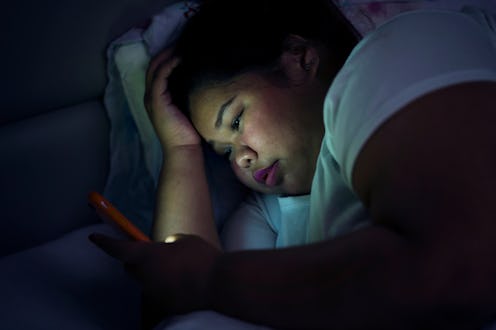Life
Millennials Might Be “The Loneliest Generation” — But Here’s What Can Help

There’s a fine line between regularly enjoying time alone and feeling isolated or lonely. Even if you’re a solitude-loving introvert, engaging in meaningful ways with people you care about is a key component to maintaining your well-being and mental health. While folks from all generations can be affected by social isolation, a new study says that Millennials report feeling the most loneliness.
New data released by researchers from YouGov shows that 30% of Millennials say that they “often or always feel lonely,” while 20% of Generation X says that they need more social interaction. Baby Boomers reported the least amount of loneliness — just 15% say that they’re alone too much. Additionally, one in five Millennials say that they have no friends at all (excluding partners and family members), the findings show. Still, 70% of Millennials do say that they have at least one best friend, while nearly half (49%) report between one and four “close friends,” according to the study.
Analyzing data from a recent poll combined with research, YouGov researchers studied 1,254 adults age 18 and over, Vox reports. Excessive time spent on the internet and social media might have a negative impact on Millennials’ social engagement, Vox says. A study from the University of Pennsylvania (UPenn) shows a connection between social media use and increased anxiety, depression, and social isolation. This doesn’t mean you need to ditch social media entirely, the UPenn researchers say, but you might want to note how you feel after you’ve been scrolling your feed for awhile. If you notice a dip in your mood, or an uptick in negative thoughts, you might want to reassess your usage.
YouGov researchers didn’t examine exactly why the social media generation is so lonely, the study says. But the increasing demands of adulthood, such as careers and parenthood, can put a cramp in even the most extroverted party goers social style, notes Vox. Researchers have known for some time now that loneliness raises the risk for mental health disorders, like depression and anxiety, Forbes writes. Social isolation can also result in physical changes that lead to chronic inflammation, says Forbes. Chronic inflammation can disrupt healthy immunity, and may lead to a slew of health conditions, such as stroke, heart disease, and certain cancers, notes Forbes.
Despite obstacles like heavy workloads and even shyness, new friendships can be formed at any life stage, YouGov researchers say. If you feel like you need to engage with other people more, a gentle — or even firm — push may be what it takes to break the cycle of loneliness. Making the effort to get out of the house, and join a support group, a new class or book club, or volunteering may help you make new connections.
Even if all you want to do after a long day is bury yourself in Netflix, know that making friends will help boost your mental health and overall happiness. And if social anxiety is creating a barrier between you and making new friendships, reach out for help. A qualified therapist can help you devise a strategy for managing your mental health, so that you’re freed up to pursue new connections that can increase your quality of life.
If you or someone you know is seeking help for mental health concerns, visit the National Alliance on Mental Health (NAMI) website, or call 1-800-950-NAMI(6264). For confidential treatment referrals, visit the Substance Abuse and Mental Health Services Administration (SAMHSA) website, or call the National Helpline at 1-800-662-HELP(4357). In an emergency, contact the National Suicide Prevention Lifeline at 1-800-273-TALK(8255) or call 911.